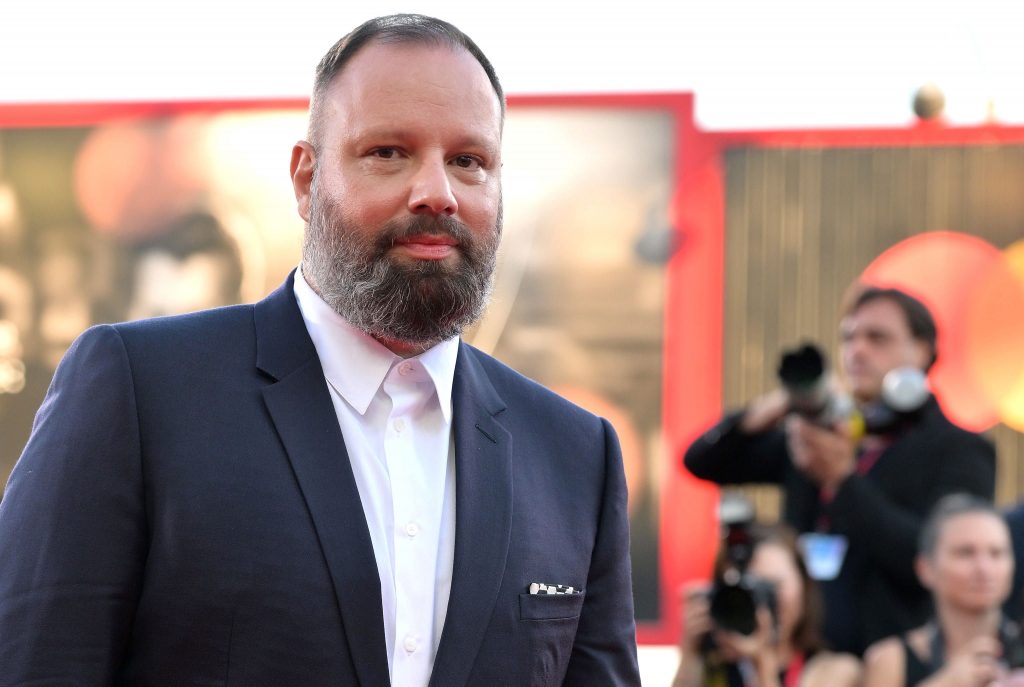The nominees for the 96th Academy Awards were announced on Jan. 23. Here’s a roundup of the films contending for Best Picture, as covered by Kyle Smith, The Wall Street Journal’s film critic.
American Fiction
Who is the authentic black American? The gangsta rapper? The angry street protester? How about the successful plastic surgeon, or the mild-mannered professor? All of them, of course, and many more. The matter has been a topic of intense debate for many decades: In 1963, Ralph Ellison said of the critic Irving Howe that “when he looks at a Negro he sees not a human being but an abstract embodiment of living hell” and asked, “Why is it that so many of those who would tell us the meaning of Negro life never bother to learn how varied it really is?”
That line could serve as the epigraph for “American Fiction,” an unusually thoughtful dramedy about the frustrations and dilemmas of a slightly worn-down black English professor and novelist named Thelonious “Monk” Ellison (impeccably played by Jeffrey Wright). The 30-second pitch for this movie is tantalizing: What if a highbrow black writer pretended to be a stereotypical bard of the ghetto, complete with spotty grammar, a prison record and an inordinate terror of police sirens? What if he were far more successful as a fake gangster than as a cultured academic whose work is informed by Aeschylus and Aristophanes?
Anatomy of a Fall
A boy with severely impaired eyesight returns home from a walk with his dog to discover his father dead in the snow, with a severe head wound. Did he fall, did he jump, or was he pushed?
“Anatomy of a Fall,” a French film co-written and directed by Justine Triet, is structurally a fairly standard did-she-or-didn’t-she courtroom procedural centered on Sandra (Sandra Hüller), a novelist married to Samuel (Samuel Theis), a professor whose gruesome sudden death sets events in motion. The boy’s difficulty in seeing mirrors his mother’s difficulty in communicating: She’s a German who was married to a Frenchman and lives near Grenoble, in the French Alps. She sometimes struggles to find the right word in French. These barriers remind the audience that it can be difficult to pierce through the distractions and arrive at the truth.
Barbie
In “Barbie,” Will Ferrell plays the CEO of Mattel, who muses, “Remember Proust Barbie? That did not sell well.” It’s the film’s second reference to the French modernist novelist, and its makers would have been well advised to heed their own joke and question the wisdom of stuffing this fantasy-comedy with references to the mastectomy and IRS troubles of the doll’s creator, gynecology, the mass devastation of indigenous people by smallpox, and (this comes up many times) “irrepressible thoughts of death.”
Delightful to look at, with its Skittles color scheme and its visual jokes about living in a land of dolls—everyone has a cup, but there’s no liquid in them—“Barbie” begins in idyllic, silly Barbieland, where many iterations of the doll live happily in their dream houses. Life consists of dancing, lounging and changing outfits. Amid many multicultural iterations of Barbie, there’s also one who uses a wheelchair and another who is overweight, plus many accomplished career women—scientists, politicians and so on. The central Barbie, played by Margot Robbie in a role that was seemingly waiting for her, is “Stereotypical Barbie”—the sparkly but brainless basic version who exists mainly to look pretty. When this Barbie starts experiencing morbid thoughts as though infected by human doubts, the movie turns into a reverse “Wizard of Oz.” She journeys to Mattel headquarters in contemporary Los Angeles, joined by her uninvited, little-considered boyfriend, Ken (Ryan Gosling), who is tired of being treated as her accessory, to investigate a tear in the fabric between fantasy and reality.
The Holdovers
Paul Hunham teaches ancient civilizations at an elite boys’ boarding school in 1970 New England. He is a small man with small ambitions. If he ever pulls it all together, he intends to write something on Carthage: a monograph. That’s academic-speak for “long article.” Which is less than a book. “You can’t even dream a whole dream, can you?” says an observer.
Such poignant revelations about life’s losers are the specialty of “Sideways” director Alexander Payne, who has brought back that film’s leading man, sad-sack savant Paul Giamatti, to play the churlish and abrasive teacher in “The Holdovers.” It’s the anti-“Dead Poets Society.” Instead of being a hero to his students, Paul Hunham is hated for being a callous martinet, the kind of chalkboard despot who brings up a demanding new chapter of material in the final hours before Christmas break. Formerly a promising young talent, he spends his lonely days drinking, looking at pornography and being generally exhausting. Also, he smells like fish. No group of boys is ever going to stand on desks for him, except possibly to call out, “O has-been, my has-been!”
Killers of the Flower Moon
Thud, thud, thud, thud, thud, thud. Robbie Robertson’s musical score backing “Killers of the Flower Moon” relies heavily on a low, endlessly repeated guitar or bass note that mirrors the soul-deadening events on screen. We’re in 1920s Osage territory in Oklahoma, where after an oil discovery the Native Americans are being systematically swindled, robbed and murdered by white people. Director Martin Scorsese repeats so many variations on this depressing mistreatment that experiencing the film is akin to being locked in a room with a pair of soulless sadists.
Maestro
Leonard Bernstein was a towering musical figure and a complicated man. Netflix’s “Maestro” has a great deal to say about the latter characterization and surprisingly little about the former.
In part that’s a matter of necessity: As with any creative genius, the ingredient that is most important (thinking) can’t be rendered on screen. Nobody wants to see a movie about a man sitting at a desk writing. Moreover, as depicted by writer-director-producer-star Bradley Cooper in an engaging re-creation, Bernstein had a trait that the film makes into highly cinematic drama: He was promiscuously bisexual. As the story begins, the young Lenny is leaping out of a bed he shares with another man, racing out of the room and into Carnegie Hall. It is Nov. 14, 1943. Without rehearsing, and with only a few hours’ notice, Bernstein has been selected to fill in for Bruno Walter as conductor of the New York Philharmonic. Such was Bernstein’s triumph on that day that he would be famous for the rest of his life.
Oppenheimer
“This isn’t a new weapon. It’s a new world,” someone remarks as J. Robert Oppenheimer develops the atomic bomb in “Oppenheimer,” a brainy and breathless exploration of the rise and fall of a physicist dubbed, not without reason, “the most important man who ever lived.” Like Prometheus, the mythic figure to whom he is compared here, Oppenheimer suffered for his works, bedeviled from within and without. So a story that is essentially about a scientist who spent his life writing equations becomes, in the expert hands of writer-director Christopher Nolan, a boiling cauldron of drama.
Mr. Nolan’s utterly enthralling film lasts three hours. But despite being as talky as a math seminar, it crackles, hurtles and whooshes, generating more suspense and excitement than anything found in the alleged climaxes of the recent superhero pictures (which owe much to the director’s Batman films). Adapting “American Prometheus,” the Pulitzer Prize-winning biography by Kai Bird and Martin J. Sherwin, Mr. Nolan has thought intensely about how to turn arcane material—not one person in 100 could explain the details of Oppenheimer’s method—into a popcorn movie, despite it containing only one spectacular scene.
Poor Things
Sumptuous, dazzling and glorious seem barely adequate as descriptors of “Poor Things,” a two-hour-and-20-minute cinematic fable of self-discovery. Writer-director Yorgos Lanthimos, the dryly weird Greek filmmaker who has mostly been forced to work on skimpy budgets before, has at last been given the resources to show off everything he can do. This film makes most of last year’s acclaimed pictures look like, in the words of one of its characters, “signs of the conventional mind straining hard to almost touch mediocrity.”
As it begins in a Jules Verne-inflected London chugging with confidence about the future of technology, the film bridges science and fairy tales, continuing a centuries-long conversation between the cynical rationality underlying Voltaire’s “Candide” and the demented prophecy of Mary Shelley’s “Frankenstein.” A mad scientist, Godwin Baxter, has elements of Dr. F but, with his carved-up face, he also resembles the monster he created. Willem Dafoe, despite a dodgy Scottish accent, excels as this kind-hearted but arrogant professor and surgeon, whose ward, an orphaned young woman named Bella, is suffering from an initially unexplained cognitive impairment but recovering rapidly. “What a very pretty retard,” observes a suitor (Ramy Youssef), who establishes early on Mr. Lanthimos’s willingness to offend. As played by Emma Stone in a daring, wide-ranging and outlandishly entertaining performance, Bella enters the pantheon of the most memorable heroines in screen history.
The Zone of Interest
Pool parties, gardening pleasures, horseback rides. Occasionally a servant brings a delightful little treasure, such as a fur coat. It’s quite delightful, being the wife of the Auschwitz commandant.
Such is the premise of Jonathan Glazer’s staggering “The Zone of Interest,” a Holocaust movie unlike any other. Confining itself almost entirely to events just outside the extermination camp, where a senior SS officer and his family enjoy life in a charming little villa, it depicts no violence, and barely even shows any Jews being menaced. Yet it’s lacerating, a master class in how to show without showing.
Also nominated in this category: “Past Lives.”







